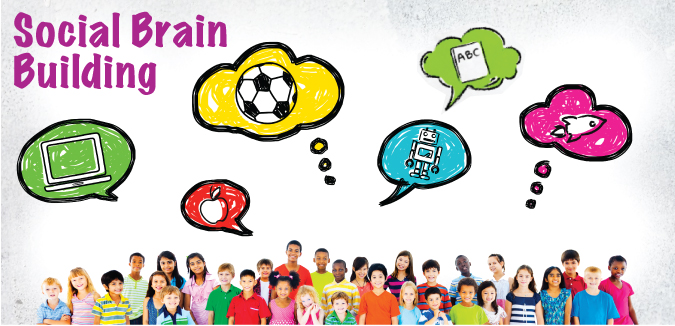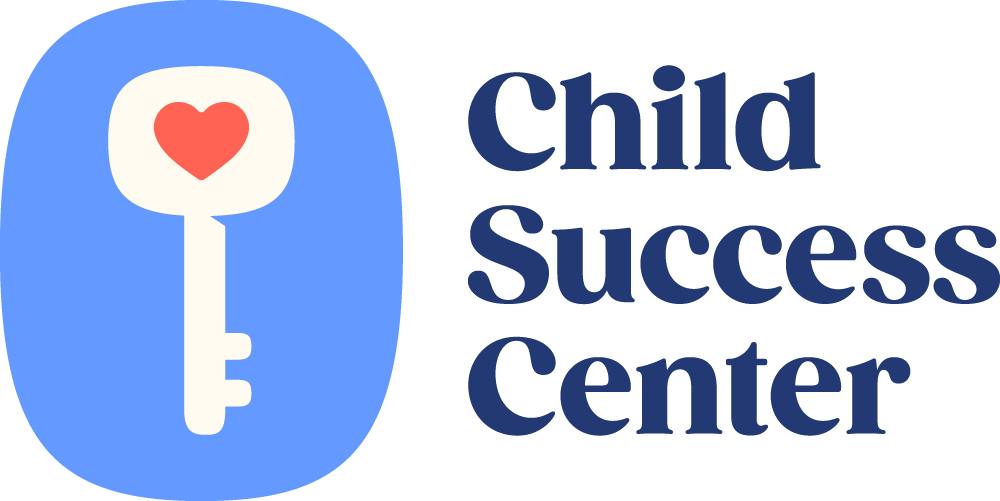Preparing for Back to School with Social Emotional Brain Building
- Back to School|
- Behavior|
- CSC Blog|
- Parenting|
- Social Skills

How the many aspects of social emotional brain building affect a child’s academic success.
When a parent thinks about “back to school”, thoughts probably turn to new backpacks, notebooks and sneakers. Academic questions likely come to mind too. After all, isn’t that mainly what school is all about? Well, yes, mainly. But a child’s back-to-school tool box needs to have social-emotional skills too, as the ability to perceive, adapt, attend and self-regulate is key to effective learning and social integration. And let’s not forget about executive function, mindfulness and self-awareness. Let’s take a closer look at each of these to make sure you can check them off your child’s back-to-school “to do” list.
Social Brain Building
Much can and should be said about social brain building, and we’ve written much on the topic. But for the sake of this article, we’ll keep it short. In a nutshell, social brain building is the development of a child’s social emotional health, critical for interactions with others.
This developmental process is not always inherent, and relies upon efficient self-regulation, sensory-motor processing, executive function, two-way communication, (verbal and non-verbal), and the capacity to stay connected, in order to develop problem solving skills and a sense of “self” in relationships. The integration of all these processing systems enables a child to think of others, taking into consideration their thoughts, emotions and intentions, and react in an expected manner to build attachments rooted in joyful, trusting relationships.
Communication
We navigate our world and our social relationships through language. Effective use of oral communication with peers sets the stage for positive self-esteem, and enables a child to advocate on his own behalf.
Receiving and processing non-verbal social communication cues requires a child to “think with their eyes”. By visually assessing a given situation they can determine what others might be thinking, how others are feeling, and what might be expected of them upon entering that situation or environment.
Speech Development Checklist
Executive Function
The ability to think as a “we” and follow directions, listen, attend, modify behavior and anticipate change, is the foundation of executive functioning. Executive function is a set of processes, or neurologically-based skills, that all have to do with managing oneself (mental control and self-regulation) and one’s resources in order to achieve a goal. A solid foundation of executive function skills is imperative to all learning.
Mindfulness and Self-Awareness
We hear a lot about “mindfulness” these days, but perhaps you’ve never heard of the body’s 8th sense. Interoception is a sensory system that gives us whole body awareness from the inside out. Receptors for interoception are widely spread throughout the body’s organs and give us a huge variety of sensations including but not limited to hunger, physical exertion, nausea, and the need to go to the bathroom. Interoception is deeply connected to our emotions and self-regulation. When a person is aware of their internal state they will either consciously or unconsciously take steps to self-soothe. That entire process from sensory perception, to awareness to self-soothing, all together is called self-regulation. Our desire is for our children to be regulated in order for them to successfully build meaningful relationships with others.
Self-regulation
Self-regulation refers to the ability to manage your reactions to your emotional and physical feelings and the environment around you, and begins with the ability to identify and validate those feelings. The ability to self-regulate is closely tied to one’s awareness of their internal state via the interoceptive sensory system as well as efficient management of input from all 8 sensory systems.
Sensory Processing
Self-regulation depends largely on a child’s capacity to turn the volume up and down on incoming sensory information from all 8 sensory systems. Effective sensory processing directly affects a child’s ability to attain and maintain the “just right” state of regulation necessary for the classroom and peer interactions.
So as you might have surmised, the system of social emotional skills is complex and highly interconnected. It is also vitally important to a child’s academic success, and really to all of life’s successes.
Have a look at these areas of development as part of your preparation for the upcoming school year. If you have concerns regarding your child’s proficiency in any of the areas discussed above, a consultation with an early childhood development specialist might be recommended. It’s never too late to learn a new skill set, but like with anything, the sooner the better!
